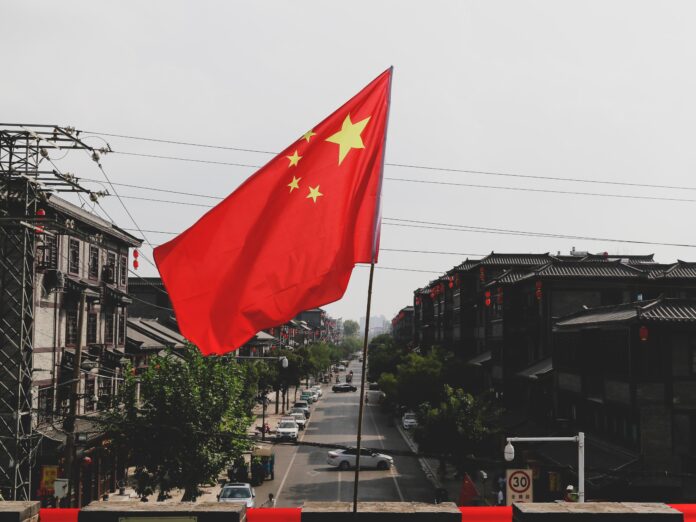The world’s second-largest economy, home to more than 1.4 billion people, is facing a host of problems – including slow growth, high youth unemployment, and a property market in disarray.
Now the chairman of the country’s heavily indebted real estate developer, Evergrande, has been placed under police surveillance and the company’s shares have been suspended on the stock market.
While these issues add up to a major headache for Beijing, how much does it matter to the rest of the world?
Analysts believe worries of an impending global catastrophe are overstated. But multinational corporations, their workers, and even people with no direct links to China are likely to feel at least some of the effects. Ultimately, it depends on who you are.
Impact on Multinational Corporations
“If Chinese people start cutting back on eating out for lunch, for example, does that affect the global economy?” asked Deborah Elms, executive director of the Asian Trade Centre in Singapore.
“The answer is not as much as you might imagine, but it certainly does hit firms who directly rely on domestic Chinese consumption.”
Hundreds of big global companies such as Apple, Volkswagen, and Burberry get a lot of their revenue from China’s vast consumer market and will be hit by households spending less. The knock-on effects will then be felt by the thousands of suppliers and workers around the world who rely on these companies.
When you consider that China is responsible for more than a third of the growth seen in the world, any kind of deceleration will be felt beyond its borders.
The US credit rating agency Fitch said last month that China’s slowdown was “casting a shadow over global growth prospects” and downgraded its forecast for the entire world in 2024.
However, according to some economists, the idea that China is the engine of global prosperity has been exaggerated. “Mathematically, yes, China accounts for around 40% of global growth,” says George Magnus, an economist at the University of Oxford’s China Centre.
“But who is that growth benefitting? China runs a huge trade surplus. It exports so much more than it imports, so how much China grows or doesn’t grow is really more about China than it is about the rest of the world.”
Nevertheless, China spending less on goods and services – or on housebuilding – means less demand for raw materials and commodities. In August, the country imported nearly 9% less compared to the same time last year – when it was still under zero-Covid restrictions.
“Big exporters such as Australia, Brazil, and several countries in Africa will be hit hardest by this,” says Roland Rajah, director of the Indo-Pacific Development Centre at the Lowy Institute in Sydney.
Implications of Falling Prices
Weak demand in China also means that prices there will stay low. From a Western consumer perspective, it would be a welcome way of curbing rising prices that does not involve further raising interest rates.
“This is good news for people and businesses struggling to deal with high inflation,” Mr Rajah says. So in the short-term, ordinary consumers may benefit from China’s slowdown. But there are longer term questions for people in the developing world.
Over the last 10 years, China is estimated to have invested more than a trillion dollars in huge infrastructure projects known as the Belt and Road Initiative.
More than 150 countries have received Chinese money and technology to build roads, airports, seaports, and bridges. According to Mr Rajah, Chinese commitment to these projects may start to suffer if economic problems persist at home.
“Now Chinese firms and banks won’t have the same financial largesse to splash around overseas,” he says.
China’s Role in Global Affairs
While reduced Chinese investment abroad is a possibility, it is unclear how else China’s domestic economic situation will affect its foreign policy.
A more vulnerable China, some argue, may seek to repair damaged relations with the US. American trade restrictions have partly contributed to a 25% drop in Chinese exports to the US in the first half of this year, while US Trade Secretary Gina Raimondo recently called the country “uninvestable” for some American firms.
But there is no evidence to suggest China’s approach is softening. Beijing continues to retaliate with restrictions of its own, frequently blasts the “Cold War mentality” of western countries and appears to maintain good relations with authoritarian leaders of sanctioned regimes, such as Russia’s Vladimir Putin and Syria’s Bashar Al-Assad.
At the same time, a stream of US and EU officials continue to travel to China every month to keep up talks on bilateral trade. The truth is that few people really know what lies between Chinese rhetoric and Chinese policy.
Anticipating the Unknown
However, if there is one lesson to learn from history, it is to expect the unexpected. As Ms. Elms points out, few people before 2008 anticipated that subprime mortgages in Las Vegas would send shockwaves through the global economy.
The echoes of 2008 have got some analysts worried about what is known as “financial contagion.” This includes the nightmare scenario of China’s property crisis leading to a full-blown collapse in the Chinese economy, triggering financial meltdown around the world.
Preparing for Global Economic Surprises
Parallels with the subprime mortgage crisis – which saw the collapse of Wall Street investment giant Lehman Brothers and a global recession – are certainly tempting to make. But, according to Mr. Magnus, they are not completely accurate.
“This is not going to be a Lehman-type shock,” he says. “China is unlikely to let their big banks go bust – and they have stronger balance sheets than the thousands of regional and community banks that went under in the US.”
Ms. Elms agrees: “China’s property market is not linked to their financial infrastructure in the same way that American subprime mortgages were. Besides, China’s financial system is not dominant enough for there to be a direct global impact like we saw from the United States in 2008.”
“We are globally interconnected,” she says. “When you have one of the large engines of growth not functioning it affects the rest of us, and it often affects the rest of us in ways that weren’t anticipated.”
“It doesn’t mean I think we’re headed for a repeat of 2008, but the point is that what sometimes appear to be local, domestic concerns can have an effect on us all. Even in ways that we wouldn’t have imagined.”
Conclusion
The world is closely watching China’s economic challenges, and while the immediate global catastrophe might be overstated, the interconnectedness of the modern world ensures that the repercussions will be far-reaching. Multinational corporations, supply chains, and even ordinary consumers worldwide are not immune to the effects of China’s economic turbulence. As we navigate this uncertain terrain, one thing remains clear: in today’s global economy, expect the unexpected.
Frequently Asked Questions
- Is China’s economic slowdown a cause for immediate global concern? China’s economic slowdown may not lead to an immediate global crisis, but its impact on multinational corporations and supply chains can have far-reaching consequences.
- How does China’s trade surplus affect the global economy? China’s trade surplus means it exports more than it imports, and while it contributes to global growth, the benefits may be more localized to China itself.
- What are the potential implications of China’s reduced investment in infrastructure projects like the Belt and Road Initiative? If China’s economic problems persist, its commitment to overseas infrastructure projects may wane, affecting countries that rely on Chinese investment and technology.
- How might China’s economic challenges influence its foreign policy? A more vulnerable China could lead to shifts in its foreign policy, potentially impacting relations with the U.S. and other nations.
- Could China’s economic downturn exacerbate tensions over Taiwan? There are concerns that China’s economic difficulties might make its stance on Taiwan less predictable, potentially affecting regional stability.



